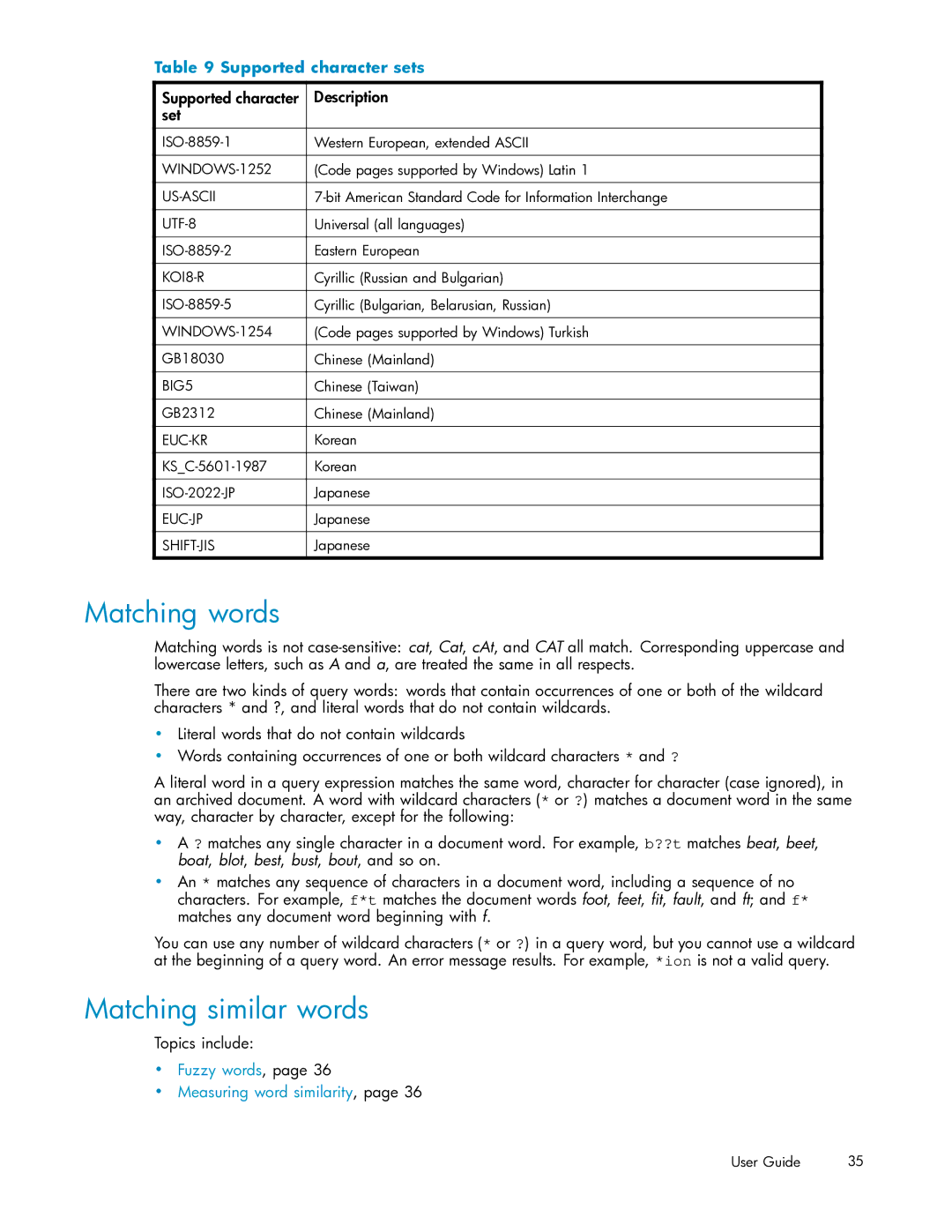Table 9 Supported character sets
Supported character | Description |
set |
|
|
|
Western European, extended ASCII | |
|
|
(Code pages supported by Windows) Latin 1 | |
|
|
| |
|
|
Universal (all languages) | |
|
|
Eastern European | |
|
|
Cyrillic (Russian and Bulgarian) | |
|
|
Cyrillic (Bulgarian, Belarusian, Russian) | |
|
|
(Code pages supported by Windows) Turkish | |
|
|
GB18030 | Chinese (Mainland) |
|
|
BIG5 | Chinese (Taiwan) |
|
|
GB2312 | Chinese (Mainland) |
|
|
Korean | |
|
|
Korean | |
|
|
Japanese | |
|
|
Japanese | |
|
|
Japanese | |
|
|
Matching words
Matching words is not
There are two kinds of query words: words that contain occurrences of one or both of the wildcard characters * and ?, and literal words that do not contain wildcards.
•Literal words that do not contain wildcards
•Words containing occurrences of one or both wildcard characters * and ?
A literal word in a query expression matches the same word, character for character (case ignored), in an archived document. A word with wildcard characters (* or ?) matches a document word in the same way, character by character, except for the following:
•A ? matches any single character in a document word. For example, b??t matches beat, beet, boat, blot, best, bust, bout, and so on.
•An * matches any sequence of characters in a document word, including a sequence of no characters. For example, f*t matches the document words foot, feet, fit, fault, and ft; and f* matches any document word beginning with f.
You can use any number of wildcard characters (* or ?) in a query word, but you cannot use a wildcard at the beginning of a query word. An error message results. For example, *ion is not a valid query.
Matching similar words
Topics include:
•Fuzzy words, page 36
•Measuring word similarity, page 36
User Guide | 35 |
